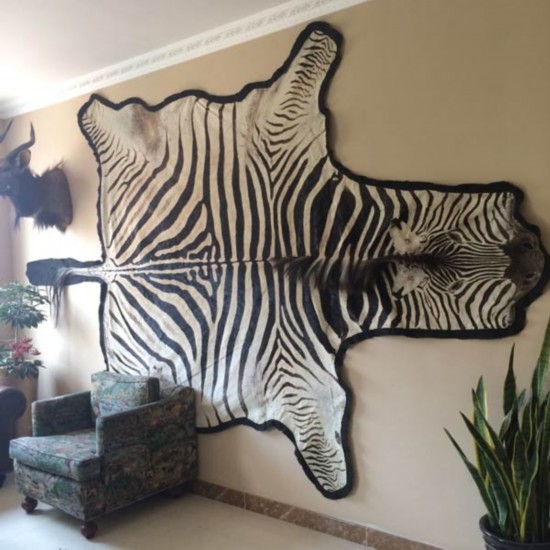Rich travelers set sights on overseas game hunting
 0 Comment(s)
0 Comment(s) Print
Print E-mail China Daily, July 9, 2014
E-mail China Daily, July 9, 2014
|
|
|
Specimen of animals hunted around the world are displayed in hunters' club in Beijing. YANG YAO/CHINA DAILY |
The number of Chinese going abroad for trophy hunting has grown tenfold in the past five years, as wealthy Chinese travelers increasingly seek out wild and exotic experiences.
Scott Lupien, CEO of 52 Safari International Hunting Club, a leading outbound hunting company based in Beijing, said that few people went abroad to hunt before 2010, and now the number is increasing. Destination countries include Tanzania, South Africa, Mexico, New Zealand and Canada.
"In 2009, there were only two groups, in total seven people went on safari. Last year, we got 25 groups with 68 people," he said.
Lupien predicted that the number is going to be higher this year.
Travel agency Jiananmd in Nanjing, which focuses on hunting trips to New Zealand, confirmed the rapid growth.
"When we started in 2008, only a few clients showed an interest in hunting, and we had to work hard to develop the market," said Keith Wang, Jiananmd's general manager. "Now, driven by strong domestic demand, we have more diversified travel products."
For a minimum of 69,800 yuan ($11,200), Chinese tourists can join a 10-day safari-hunting trip to South Africa and bring back four trophies: a Baikal corner antelope, zebra, warthog and high oryx. For 960,000 yuan ($154,000), they can hunt a 4.5-ton white rhinoceros.
According to New Weekly, in Guangzhou, Chinese tourists started hunting abroad around 2004. Trophy hunting is an old sport in the West, and is now being welcomed in China, where the use of guns is tightly controlled and hunting is a rare experience.
Lupien said his targeted clients are primarily affluent people who can afford to go on trips and are allowed to travel abroad.
They range in age from 16 to 63 years old, and they receive training from professional hunters.
Hunting rights are purchased from the host countries, and they obtain a permit from the Convention on International Trade in Endangered Species of Wild Fauna and Flora if the animal is rare.
But along with more media exposure has come a lot of criticism.
Public debate about trophy hunting centers on the morality of sport hunting and the extent to which the money paid by trophy hunters benefits the game animals and the local economy.







